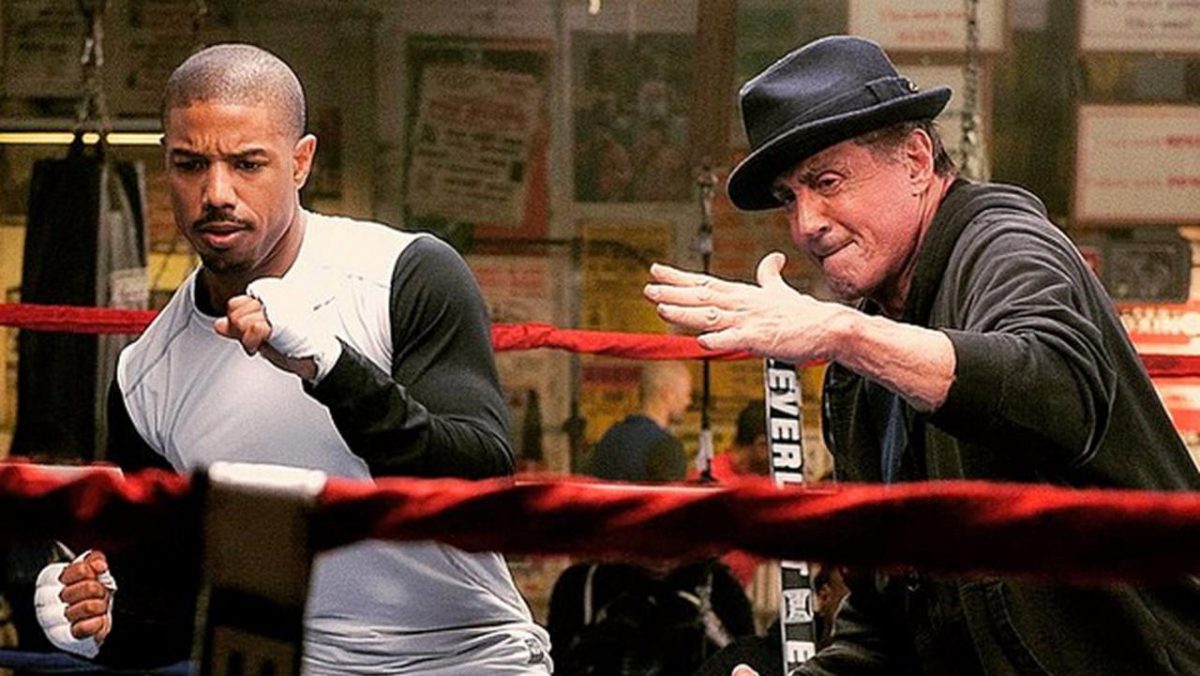 (4 / 5)
(4 / 5)
Few film series have taken the beating in their time that Rocky has.
After a triumphant first bout that launched Sylvester Stallone into the big-time, the series steadily descended into cheesy self-parody. After the judge’s decision of Rocky IV — great villain, hilarious overuse of musical montages — and the knockdown loss of Rocky V — which ended with the Italian Stallion beating some ginger lout in a street brawl — Rocky Balboa allowed the former champ (both the title character and Stallone himself) to make a semi-graceful exit.
Now, nine years on, Stallone returns to the role that first made his name; if only to hand the franchise over to the next generation.
Creed opens thirteen years after the death of the legendary Apollo. His illegitimate son, Adonis Johnson, is serving time in juvie; that is until his father’s widow, Mary Anne (Phyllicia Rashad), arrives and offers him a new life, one where he’ll no longer have to fight to survive.
Fighting, though, is more than just a means of survival to Adonis: it’s a way of life. In the present day, the now adult Donnie (Michael B. Jordan) quits his job at a respectable finance company and heads out to Philadelphia looking for the long-retired Rocky, the man who was ringside the night Apollo died. Donnie’s aim: to receive training and become a champion in his own right.
The film’s premise is well-worn and one that could easily descend into hokiness. Ever since the first Expendables film made landfall back in 2005, Stallone has been steadily milking us for our nostalgia dollars at the cost of any artistic credibility he once had. However, in the hands of up-and-coming filmmaker Ryan Coogler, Creed is, stylistically a least, a much different creature from the film’s that preceded.
Where Rocky had its slurring protagonist laying smack-downs on slabs of slaughterhouse beef to the tune of Survivor, Creed replaces dramatic brute force with speed, agility, and surprising pathos in dealing with its parallel themes of coming in and going out.
The film finds Rocky dealing with the ongoing despair of losing everyone he cares about. Living alone and pushing seventy, all he wants to do is quietly run his restaurant and visit the graves of his wife and recently deceased brother-in-law. Stallone totally sells the weariness of the former Italian Stallion, a man whose sheer tenacity made him a champion but who has more or less put himself out to pasture. Diagnosed with non-Hogkin’s lymphoma, he’s resigned to laying down and dying until Donnie gives him a reason to fight.
A sort of meathead Mr. Miyagi, Stallone has certainly come a long way since he first laced up the gloves forty years ago and Creed just wouldn’t be the same without the sense of history he brings to the role.
That being said, Creed is all about the rising star for whom Stallone dignifiedly makes way — this is the first film in the franchise he didn’t script himself. Whereas Rocky was very much a rags-to-riches story, Creed is all about one man’s struggle to live up to a legend. Jordan brings an understated focus and determination to Donnie, whose laid-back demeanor conceals serious abandonment issues.
Donnie may drive a Mustang and come from a mansion, but he’s no less worthy a fighter, and the film simply finds its dramatic mileage elsewhere. His relationship with gigging alt R&B artist Bianca (Tessa Thompson), for instance, is grounded in simplicity.
Having previously worked with Jordan in his directorial debut, Fruitvale Station, Ryan Coogler proves here that he also has an eye for action. His kinetic approach — camera tightly tracking each combatant’s footwork, getting in close for every flash-bang exchange — imbues each match with a power and fluidity that make for exhilarating viewing.
Maryse Alberti’s cinematography brings a crispness and polish worthy of an ESPN title match, plunging into the utter blackness backstage as a burst of flame signifies the arrival of Creed’s final opponent, light heavyweight champion “Pretty” Ricky Conlon (real-life professional boxer Tony Bellew).
After the elegiac overtones of 2006’s Rocky Balboa, Creed signifies a rebirth for the franchise. Essentially a soft reboot in the manner of the new Star Wars or Mad Max, the film throws away the worst of what’s come before while doing justice to the very best. The result is a slicker, tighter experience that any the series has given us before; one that, like the title characters, earns it stripes.
